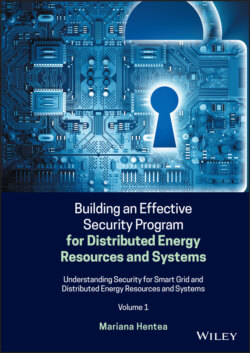Читать книгу Building an Effective Security Program for Distributed Energy Resources and Systems - Mariana Hentea - Страница 34
1.4.1.1 Security as Reliability
ОглавлениеSecurity as reliability is one aspect that is used by power engineers to describe power system reliability as the ability of the bulk power system to withstand unexpected disturbances such as short circuits or unanticipated loss of system elements due to natural causes [Nordell 2012]. Traditional power engineering practice views reliability as security.
Electric system reliability is the degree to which the performance of the elements of the electrical system results in power being delivered to consumers within accepted standards and in the amount desired. Reliability in this context encompasses two concepts, adequacy and security:
Adequacy implies that there are sufficient generation and transmission resources installed and available to meet projected electrical demand plus reserves for contingencies.
Security implies that the system will remain intact operationally (e.g. will have sufficient available operating capacity) even after outages or other equipment failure. The degree of reliability may be measured by the frequency, duration, and magnitude of adverse effects on consumer service.
Among reasons for developing an interconnected electric utility system is also the improvement in the reliability of services to customers when individual generating plant reliability was (and still is) much less than 100%. Currently, the security focus of the industry has expanded to include withstanding disturbances caused by man‐made physical or cyber attacks.
